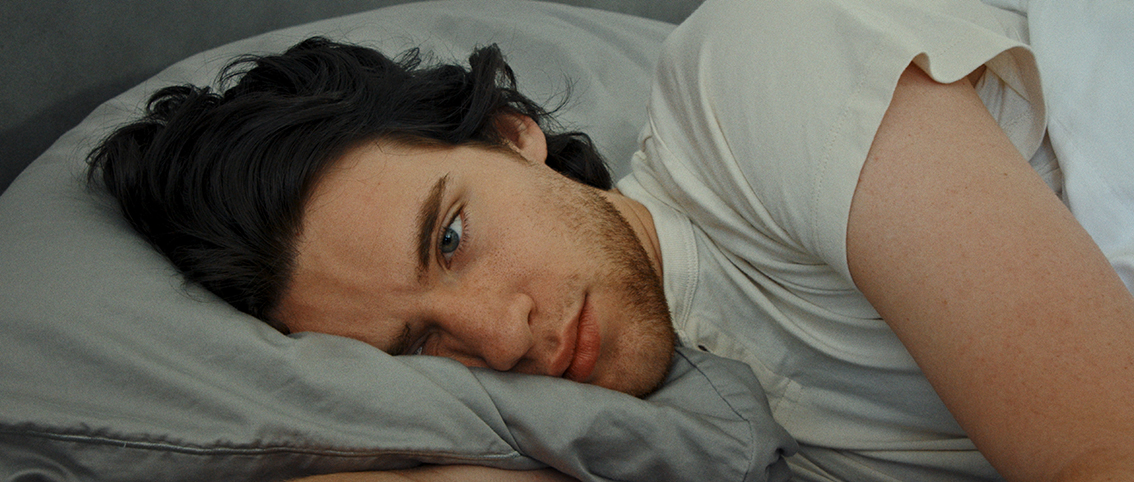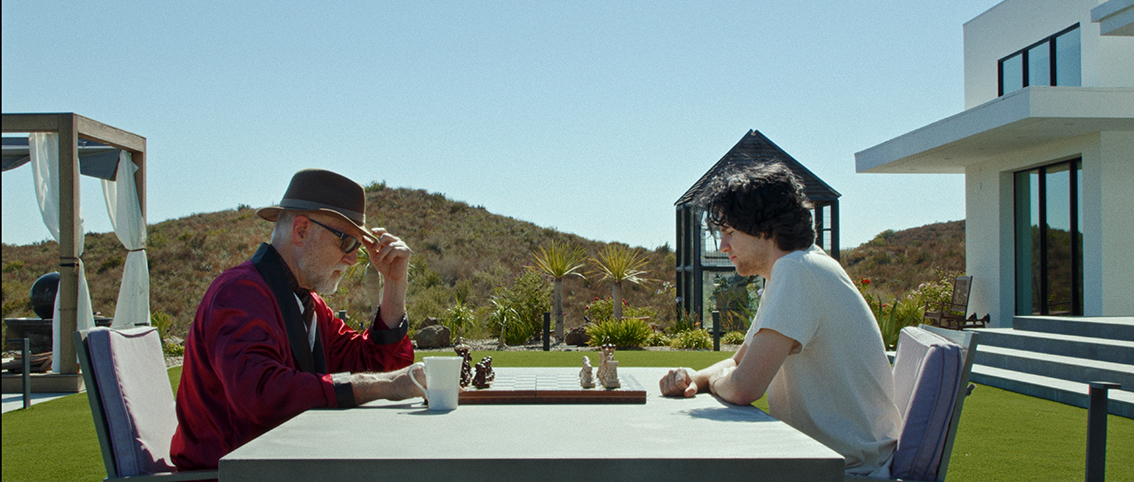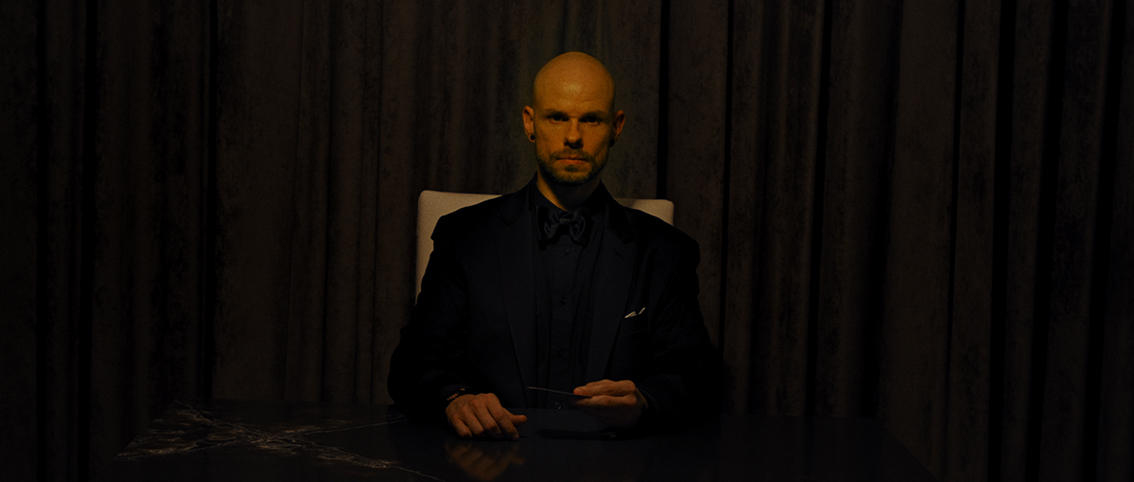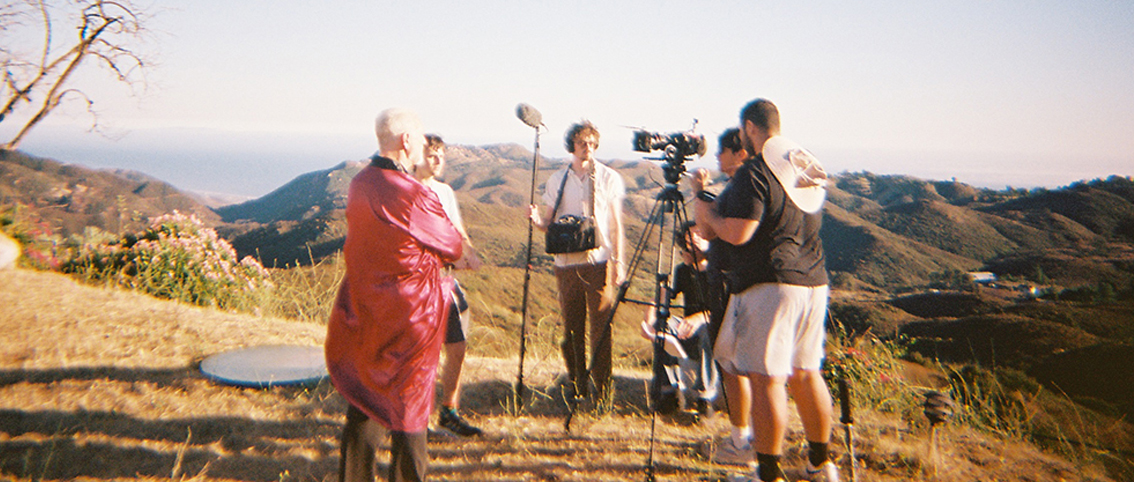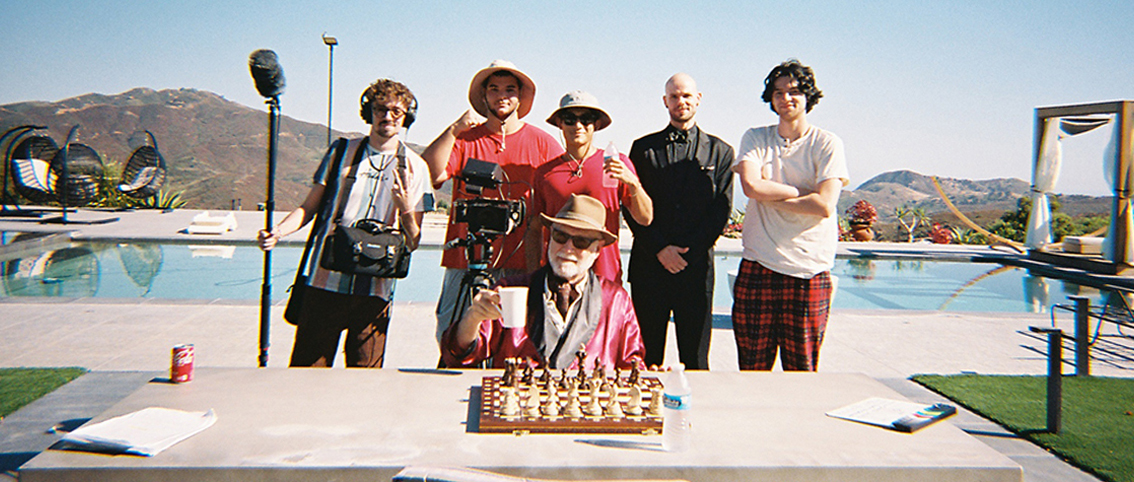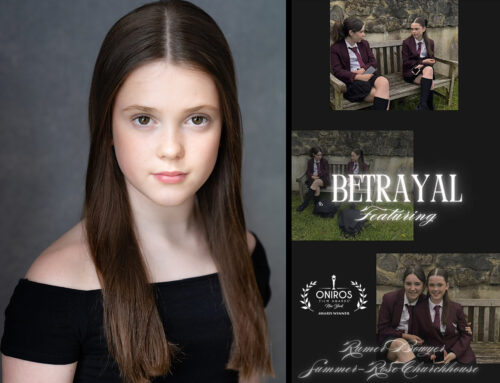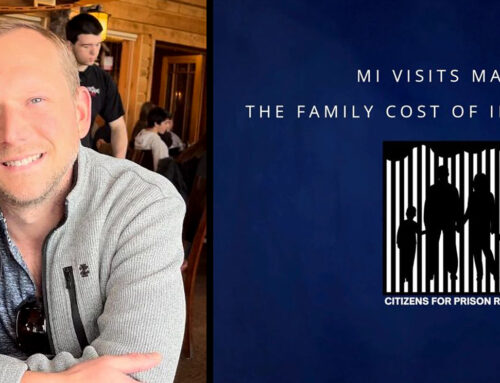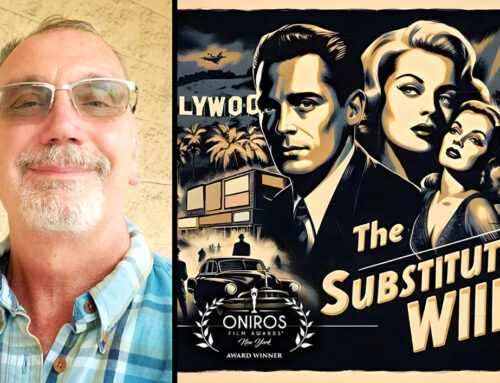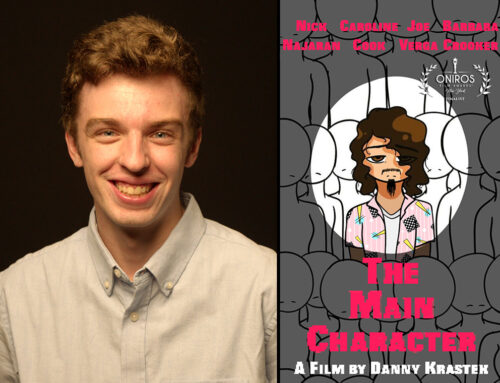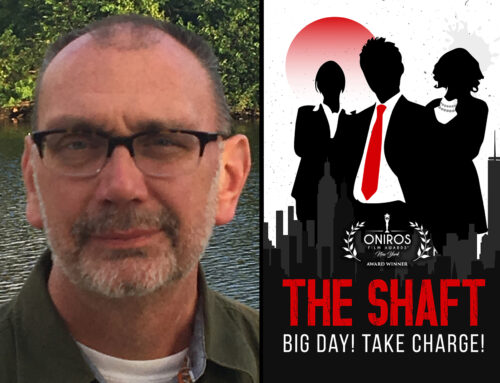BEYOND THE ONIROS FILM AWARDS®
Interview with Samer Saifan, director of the film ‘Red Rain’
by OFA Team
1.Hi Samer! ‘Red Rain’ has been recently awarded ‘Best Indie Feature’ and ‘Best Thriller Film’ at the Oniros Film Awards. Could you tell us more about this project?
This is my independent debut student feature. I’m very grateful to Oniros for selecting it and awarding it. The film has been performing well on the festival circuit. The story deals with themes of isolation, identity, and theology, questioning who we are and why we’re here, visualized through the lens of genre and supernatural elements.
The main idea for the film was to take a classic horror trope, similar to “The Twilight Zone” or the French New Wave cinema of the 1950s, and recontextualize it with a modern neo-noir experimental style. Martin Scorsese explored a similar concept with “Shutter Island” and “Cape Fear,” but he pursued a different direction rooted in his traditional American style. Paul Thomas Anderson was also a significant influence on this film, specifically with composition – him, David Fincher, and Kubrick are my biggest influences. French existentialism also deeply inspired my writing and philosophical approach.
I still feel there is much to delve into and explore with this story, and I sincerely hope to expand it into a full-length feature with a larger budget. I believe audiences will connect with the profound, surrealistic ideas the story seeks to explore, while its colorful aesthetic and potential for thrilling action also make it highly marketable.
2. Tell us a bit about your background. When did you decide you wanted to work in the film industry?
I’m a first-generation Palestinian filmmaker; my family and I moved around a few times ever since I was young. I started out in Thousand Oaks, California, but when the market crashed in 2008, my dad moved us overseas to Kuwait City for a few years. Films, music, and writing have always been a part of my life in one way or another. You learn a lot about yourself growing up as a loner in another country, especially when you don’t know the language — you’re forced to rely on things like sports or video games to keep you entertained or to make friends. I’ve always enjoyed watching movies and being creative, but I never thought there was a real opportunity to make a living out of it at that age.
For a long time, sports and competing as an athlete were a big focus in my life. I spent most of my childhood playing baseball in different countries and training with a childhood dream of being in the MLB. But after we moved back to America and I got older, eventually attending Westlake High School, I lost passion for it. During my senior year, I played basketball and football; I was very good at football and could have pursued a promising college career or more, but again, it never felt as fulfilling as the arts did to me.
After graduating from Westlake, I didn’t get into any of the big colleges I wanted. My grades in sophomore year were terrible, which ironically was when I began to find my voice as an artist through writing. I wrote a lot of poetry that year, finished a couple of screenplays, and started working on a novel by the time I graduated. I always knew I didn’t want a traditional corporate job. Coming from a very traditional family, I respect people in stable professions, but I knew it wasn’t the life for me and I wouldn’t be happy doing that. Recognizing my talent and passion for storytelling, I decided that was the best path for me. One day, I revisited one of the first short stories I ever wrote and ended up grabbing my dad’s film camera to direct a homemade short film with my brother as the actor. I submitted that film as part of my portfolio to a couple of film schools.
After a year of online community classes at Santa Monica, I was accepted as a transfer student into both New York University and USC. USC accepted me into their general school but said I didn’t have enough credits to start in the film school. NYU offered me the chance to start right away, and not wanting to wait any longer, I decided to go with them. That was definitely the biggest decision I had to make at that point in my life, even bigger than when I decided to quit baseball after so many years. Moving away from home to the other side of the country was very scary at first, but it forced me to grow as a person and gave me the space to work on my craft and form my identity.
A few years later, I’m now entering my final semester at NYU. Growing up overseas and in high school, I never met any other filmmakers or writers, so it has been a great experience to make connections with other artists for the first time in my life.
I’m eager to start working at the professional level in the film industry and to secure real budgets for my projects. I have the stories; I just need the resources. I know there’s a long road ahead of me, but it’s only been a few years since I started this journey, and my life has already changed so much. I’m hopeful and excited to see what comes next.
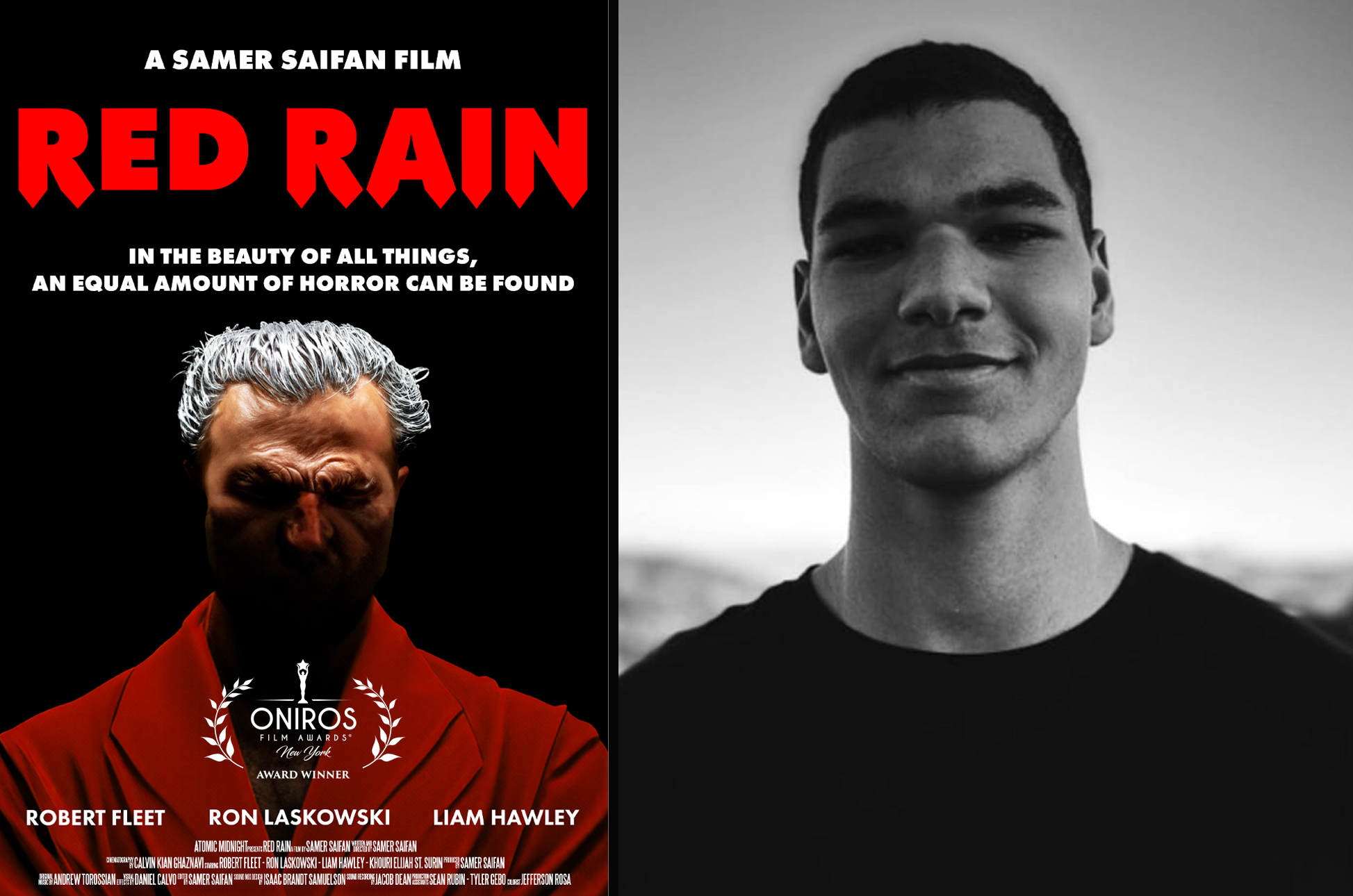
Samer Saifan and the official poster of ‘Red Rain’ – www.samersaifan.com
3. What did you enjoy the most about working this film? What did you find more challenging?
This was really the first actual film I ever made with characters speaking and having to deal with actors, blocking, and all those techniques necessary for narrative filmmaking. The only other films I had made before were my college application film, a few black and white NYU shorts with no dialogue, and a music video, so making this film was definitely a learning experience. What I enjoyed most was seeing my writing come to life and working with professional actors like Robert Fleet and Ron Laskowski. I think they did an amazing job delivering my writing through their monologues, and it was surreal to see actors embody the characters from my stylized work. It was also gratifying to see the shots I had planned become reality on screen. I really love the process of translating a visual in my mind into a painting on screen.
There were an incredible number of challenges in making this film—it was very much guerrilla filmmaking. We had a limited crew of only 3 or 4 students and virtually no money or time to comfortably explore creatively in the process. We shot all the main scenes over three twelve-hour days at my house with my digital camera, followed by six months in the editing room. We even added a couple of scenes months later in New York at my apartment. Interestingly, the film was originally intended to be 30 minutes long, matching the script length, but it organically turned out to be much longer. In the end, we cut it down a bit, finishing at 48 minutes. During post-production, I learned a lot about correcting mistakes and gained valuable lessons in directing efficiency. There were numerous production mistakes to fix and a performance that required significant editing work – I learned firsthand how crucial casting is. The entire process made me a more experienced director and provided me with tools and lessons I’ll carry into my future projects.
Because I had no connections in LA at the time, I handled all the pre-production myself. I was well-prepared for the shoot and had a clear vision for what I wanted to achieve, but I had to make many compromises depending on the skills and numbers of people in my crew. On set, I had to assistant-direct myself while also producing, which was extremely stressful. Balancing time management, directing, and working with actors was challenging, and I don’t think anyone on set truly understood the pressure I was under during filming. There were many instances where we barely finished certain scenes and almost couldn’t complete the film. Ultimately, I’m proud that I managed to pull it off. I don’t know many filmmakers who could have achieved what I did with such limited resources, and I’m grateful that we ended up with a good final product.
4. Can you tell us more about the team and cast involved in the production? How was working with them?
So we had a crew of three NYU students: one was our DP, one handled audio, and the other was a PA. Another student also came and helped us out for a couple of days towards the end of shooting. Our cinematographer, Calvin Ghaznavi, who was my roommate at the time, drove down from Orange County. Just a couple of months earlier, I had been the director of photography on his 35mm film when we were studying abroad together in Prague. Our sound guy, Jacob Dean, actually drove all the way from Sacramento to come and help us. Everyone stayed at my house for a week while we were shooting because I couldn’t afford to put them up in hotels.
I found our actors, Robert and Ron, online through Backstage. They were really interesting, and it was amazing working with them. From day one, I could tell they were prepared and had really put in the effort into their performances and the film, which I really appreciated. I hope to work with them again one day.
I met our composer, Andrew Torossian, online and really liked his previous work, so I reached out to him to help create an original score for the film. He was super easy to work with, and it was a great experience collaborating with a musician for the first time. Initially, when you’re trying to be an auteur director, you think you have to control every detail of production, but you quickly realize how much you need other great artists and collaboration to execute your vision.
5. Do you have any on set stories you would like to share?
Honestly, there aren’t many crazy fun stories to share. There was a bit of drama here and there on set, but that really just came from the chaos of independent filmmaking and from someone showing up unprepared for the film. The most stressful day was shooting that final scene on the hill during golden hour — it was intense because we had 4 pages of dialogue to fit into 2 hours while the sun was going down. I definitely felt like I was going a bit insane during that and almost gave up, but Robert Fleet really saved us that day. He performed his whole final monologue in one memorized take. I don’t think we would’ve finished the film if he hadn’t pulled that off.
One funny little thing was in the drug trip scene on the beach when the character Nick meets his mother. I couldn’t afford to pay an actress, so we put our PA in a black wig and white dress, and he played the mom for that part. We shot it in a wide angle, so in the end, no one could tell the difference. Usually, when people watch the film, they don’t even notice unless I tell them. You realize on student projects you have to do whatever you need to in order to get the story done.
I will say, after making the film, one thing that really stuck with me was having the whole crew sleep at my house while we were shooting. We would shoot all day and then play video games at night in the basement. That was a cool experience — working and hanging out with other filmmakers who are also your friends. It’s something I’ll miss.
6. What keeps you inspired to continue working as a writer and a director?
I don’t think I really need motivation to continue working. It’s almost like an obligation — I see all these stories in my mind and feel the need to get them out and create them, or else it kind of eats me up from inside. That’s really all there is to it — I love to express myself. Writing is very fulfilling and pushes you to understand more about yourself and the world, and directing is the process of creating something that has never existed before. You create an imaginary moment in very truthful circumstances — I don’t know any other art form that can do that. I’m definitely going to keep doing this until the day I die. If it’s not writing or directing, it will be making music or painting; I have to keep expressing myself to move forward. Every film I make teaches me more about myself in one way or another. You also meet such amazing people from all parts of the world; it’s a great experience to make those kinds of lifelong connections.
7. Do you have a dream project or someone you would like to work with one day?
Of course, I have so many film scripts I want to make in the future. It’s just hard choosing which one to do next because you know you’ll have to dedicate the next 6 months or year of your life to it — the material really has to personally connect with you. I’m at a point where all the ideas and concepts are there; I just need the resources to create them. There’s this one passion project I came up with when I was 16; it was the first film I ever wrote. It’s a neo-noir crime drama, and I’d really love to work with Johnny Depp, Shia LaBeouf, and Jon Bernthal on it. It’s a bold dream, but that’s definitely the film I would make if I could choose anything. Alternatively, I have another idea for a Palestinian war film about indigenous people, something akin to ‘Come and See’. I believe anything is possible; you just have to keep working on your craft, be patient, and the opportunities will come.
I’m in this for the right reasons; I don’t care too much for fame or anything like that. I just want to be a great artist with a platform for people to see and discuss my work. There’s a lot I have to prove before I can reach the level where I can secure the budgets I want for my films, but I’m excited for the future and to see where I go from here.
8. What’s next for you? What are you working on right now?
Right now, I’ve just reshot and edited the first short film I ever made with my brother. It was actually the film that got me into NYU. I completely remastered it with new cinematography and sound design, so hopefully, we can start rolling that out to festivals in a couple of months when it’s finished.
I’m in pre-production for my NYU thesis film, which we will shoot in September. It’s a political drama set in New York City. I really love the script, and it’s a very personal story, so I can’t wait to start filming. It’s going to be the biggest production I have done so far. I have a couple of producers helping me with that and a big crew of talented artists, so I’m really excited to collaborate and direct without any limitations — that’s something I never really got to show in Red Rain. We plan to go on a festival run for it in 2025. Once I graduate, I plan to move back to LA and hopefully raise money to make another feature. I’d also love to maybe start making music someday in the future.
